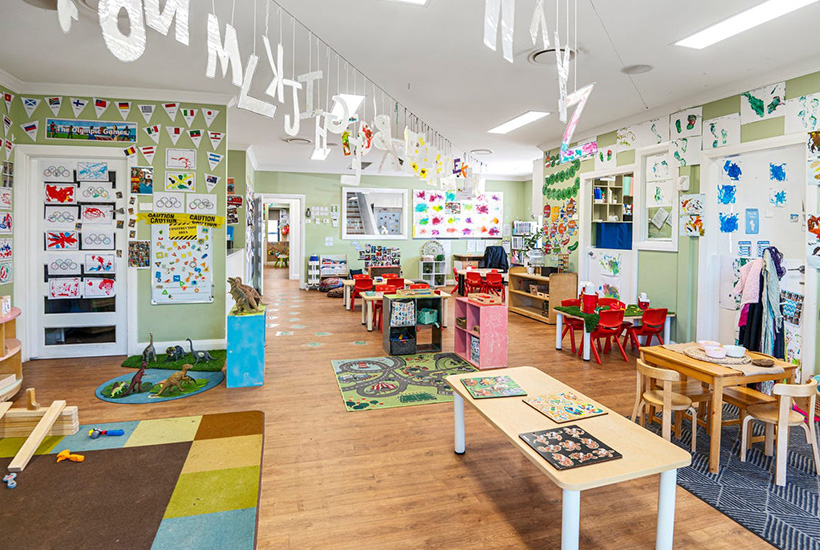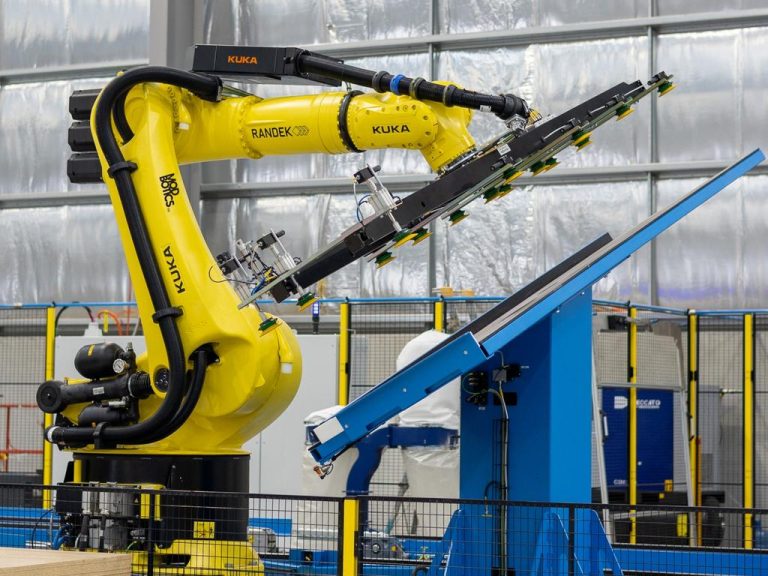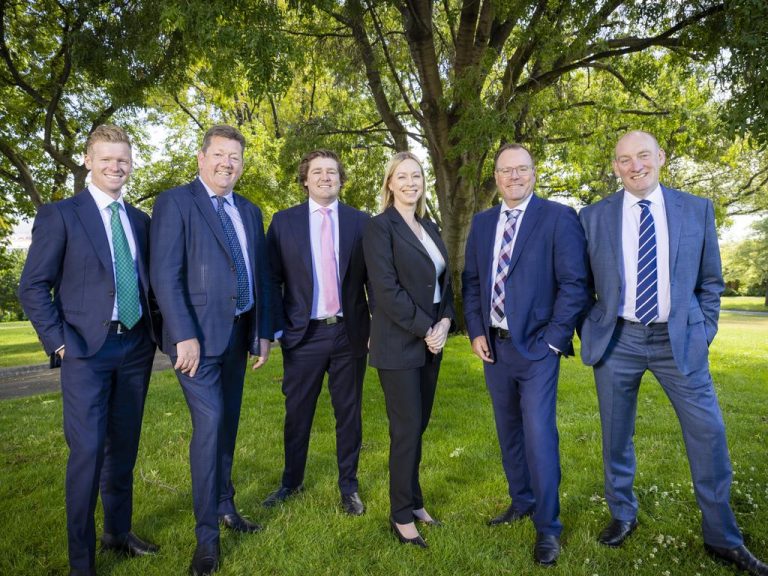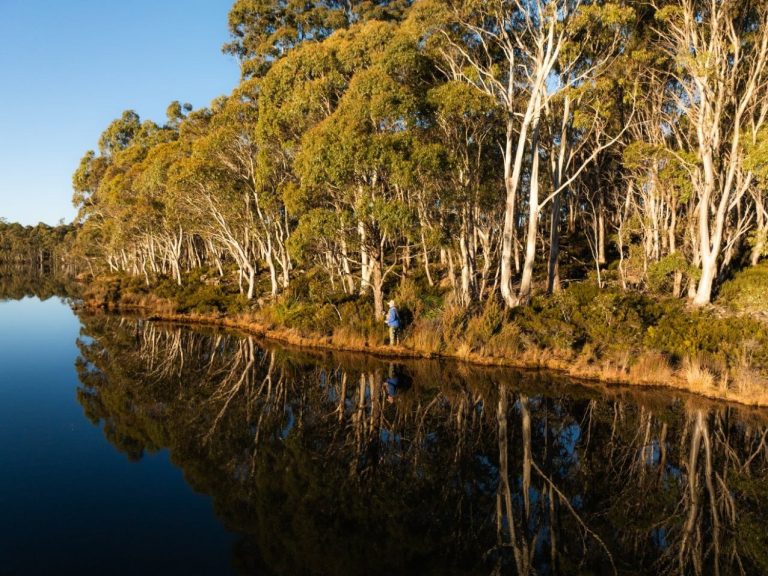NSW brings in mandatory vaccinations for some childcare workers

The vulnerability of young children who can’t be vaccinated continues to stoke debate about making vaccines mandatory for staff in childcare settings
On Saturday, the NSW Government announced early childhood educators aged 16 years or older, who lived or worked in one of the LGA’s of concern, would not be able to work unless they had at least one dose of a COVID-19 vaccine, or had been issued with a medical condition exemption, by September 6.
Ahead of the announcement, a letter issued to the NSW premier by the NSW Early Childhood Education Advisory Group provided a snapshot of the industry as of Friday, August 20: More than 130 child care services were closed and the Sydney Children’s Hospital Network was providing medical care to 700 children – 223 of whom were aged between 0-9 years – across NSW on that day.
Early Learning Association Australia’s advocacy director Megan O’Connell, told realcommercial.com.au mandatory vaccinations for all childcare workers would not be practical until sufficient vaccinations were available.
“Until we can easily access vaccination, we just can’t make them mandatory,” she said. “But, what we can do, is everything to keep our children safe, so things like wearing masks in the classroom and improving ventilation are key.”
Childcare sector in NSW ‘needs a Public Health Order’
Confusion is rife across NSW’s early childhood education sector and the families it supports, according to a peak industry advisory group.
The NSW Early Childhood Education Advisory Group wrote to NSW premier Gladys Berejikilian last week expressing “serious concerns about conflicting directives by chief health officer Kerry Chant and now yourself, regarding instructions to parents and to our State’s 5800-plus Early Childhood Education and Care services.”
Unlike schools in NSW, which have been closed due to a Public Health Order, the state government has only issued a recommendation that families who use childcare services should keep their children at home.
In comparison, Victoria, the ACT and Queensland have closed early childhood education and care services to all families during lockdowns, with the exception of children of essential workers and disadvantaged children.

Childcare centres in NSW are struggling and say the state government needs to clarify the rules over who can be cared for given the high rates of COVID in the state. Picture: realcommercial.com.au/for-sale
Michelle Carnegie, chief executive officer of Community Early Learning Australia and a member of the NSW early childhood advisory group, told realcommercial.com.au loose rules around who can and can’t attend is making it difficult for service providers.
“I called one of our members this morning and they had 100% of their children attending and that’s not uncommon,” Ms Carnegie said.
“There needs to be a Public Health Order,” she said.
“Our members are trying to manage rapid fire change and complexity and looseness of rules and the responsibility falls on the director of those service to be able to manage that with their staff and parental expectations.
“Most of the people who calls us, if they are not in tears at the beginning they are in tears by the end. They are so overwhelmed and so distressed at the environment that they are working in.”
Last month the federal government announced it would spend up to $50 million a week in supporting childcare centres in commonwealth COVID hotspots. The funding will see centres receive 25% of their pre-lockdown revenue on the proviso that they maintain staff levels and waive gap fees for families.
According to CELA many of its community providers are not eligible for current government funding – business continuity payments or JobSaver – and had “drained any nest egg they had accumulated over the years.”
“We fear that the consequence of not taking the PHO [Public Health Order] one step further will result in services across NSW experiencing unsustainable financial and workforce loss,” it told members in last week’s newsletter.
“Loss of work force means that the sector will not have the qualified educators needed to meet the early education and care places required on the other side of restrictions.”
Childcare workforce crisis
Australia’s $13 billion childcare industry was facing a workforce crisis even before COVID-19 hit our shores. Faced with lowly pay and perceptions of being undervalued, an increasing number of staff have left or are considering leaving the sector.
Last month the United Workers Union released the results of a survey of 4000 current and former educators. It revealed the sector was losing staff at record levels because of excessive workloads and low pay.
More than a quarter of current educators said they planned to leave the sector within the next twelve months, and of those who plan to stay, almost half (46%) think about leaving ‘all of the time’ or ‘most of the time’. The union said projections showed the sector would need 40,000 additional staff by 2023 to meet growing demand for early learning services.
An industry survey conducted in June reinforced the cloud over the sector. The CELA and Early Learning Association Australia survey of 394 providers found staff turnover had increased, or greatly increased, for 50% of the respondents.
The biggest factors impacting staff turnover and shortages included: staff needing to test and isolate (50%) and staff forced to take additional sick leave due to mental health and exhaustion (51%). The survey found 51% of staff intended to leave the sector.
“The need to address workforce shortages was serious pre-June, and we fear that the situation is now acute as services endure so many additional pressures during lockdown,” said Ms Carnegie.
Early Learning Association Australia’s advocacy director Megan O’Connell agrees that it will be a challenge for all centres to remain fully staffed moving forward, but is hopeful that heightened awareness around the importance of childcare services will boost the industry.
“One of the upsides of COVID, if there is one, is that we have seen how crucial the early childhood education and care sector is to so many. And these are workers who by-and-large have been able to maintain their jobs when lots of people have been stood down as part of COVID.
“In Victoria we are really fortunate to have just negotiated a great new enterprise agreement for our kindergarten where we will see our kindergarten teachers earning the same as they would in the school system.
Ms O’Connell said she hoped increases in pay and the continuity of employment would attract people to the sector.
“I think families have valued childcare before, but we’re now seeing how crucial it is to children’s social, emotional and academic development and to families and the economy functioning. I think we are hopefully going to come out of COVID having put a much greater value on it.”







